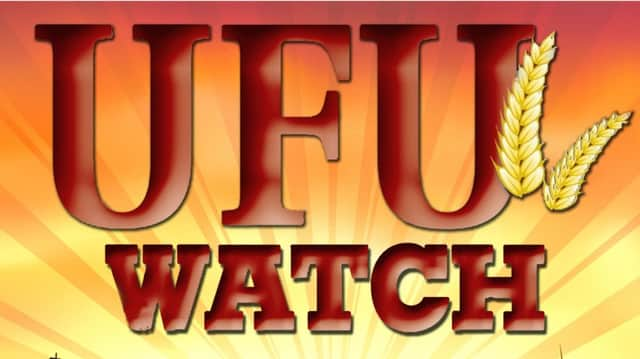Members raise import concerns at Belfast Port


This follows concerns raised by the UFU livestock committees about meat imports and disease controls on all imported products to Belfast Port and Belfast International Airport. Both the port and airport are two of around 300 Border Inspection Posts (BIPs) in the European Union. The port is the only BIP where food can be imported while the airport BIP is available for animal products only (such as bull semen or embryos). These BIPs are the only legal access points into the EU for food and animal products from countries outside of the EU.
Legally speaking, the movement of EU produced food within the EU is not considered ‘imported’ rather it is described as a ‘movement’ within the EU. Effectively this means that EU produced food can move anywhere within the Union as long as it is coming from EU approved facilities. Only food which comes from outside the EU is considered an ‘import’ by EU legislation and this is where both DAERA and the Environmental Health officers have a role to conduct documentary and physical checks on all imports into Northern Ireland. Should food imports from 3rd countries meet the controls in Belfast or any of the 300 BIPs across Europe this grants these imports ‘customs clearance’ to move anywhere within the EU.
Advertisement
Advertisement
Where food imports do not meet the authorities requirements they will either be re-exported from the EU, transformed into other products (eg pet food) or destroyed. The authorities believe financial losses which would be incurred if the imports did not meet EU requirements act as a sufficient dis-incentive not to be involved in fraudulent activity.
At the meeting the UFU highlighted concern about the level of New Zealand lamb, Australian lamb and Botswanan beef which is being imported into Belfast port.
There are concerns within the membership that these imports have the ability to undermine local beef and lamb prices while also being more likely to be involved in fraudulent activity. This is a particular concern in local wholesalers and butchers shops where there could be opportunities for mis-labelling.
The UFU was also made aware that only a very low level of testing (largely based on perceived risk) was conducted on the species or residues contained within imported meat containers. The rationale behind this comes from the FSA’s national monitoring programme, but it is an area the UFU would like to see more testing done.
Advertisement
Advertisement
DAERA also took the opportunity to demonstrate the surveillance they have at Belfast airport where they regularly inspect luggage for imported products which are considered a disease risk to the local agriculture sector.
DAERA’s border post inspectors have witnessed an increase in seizures at the airport in the recent years following the employment of two trained sniffer dogs. Products seized include bush meat, snake oil, honey, milk and plants.